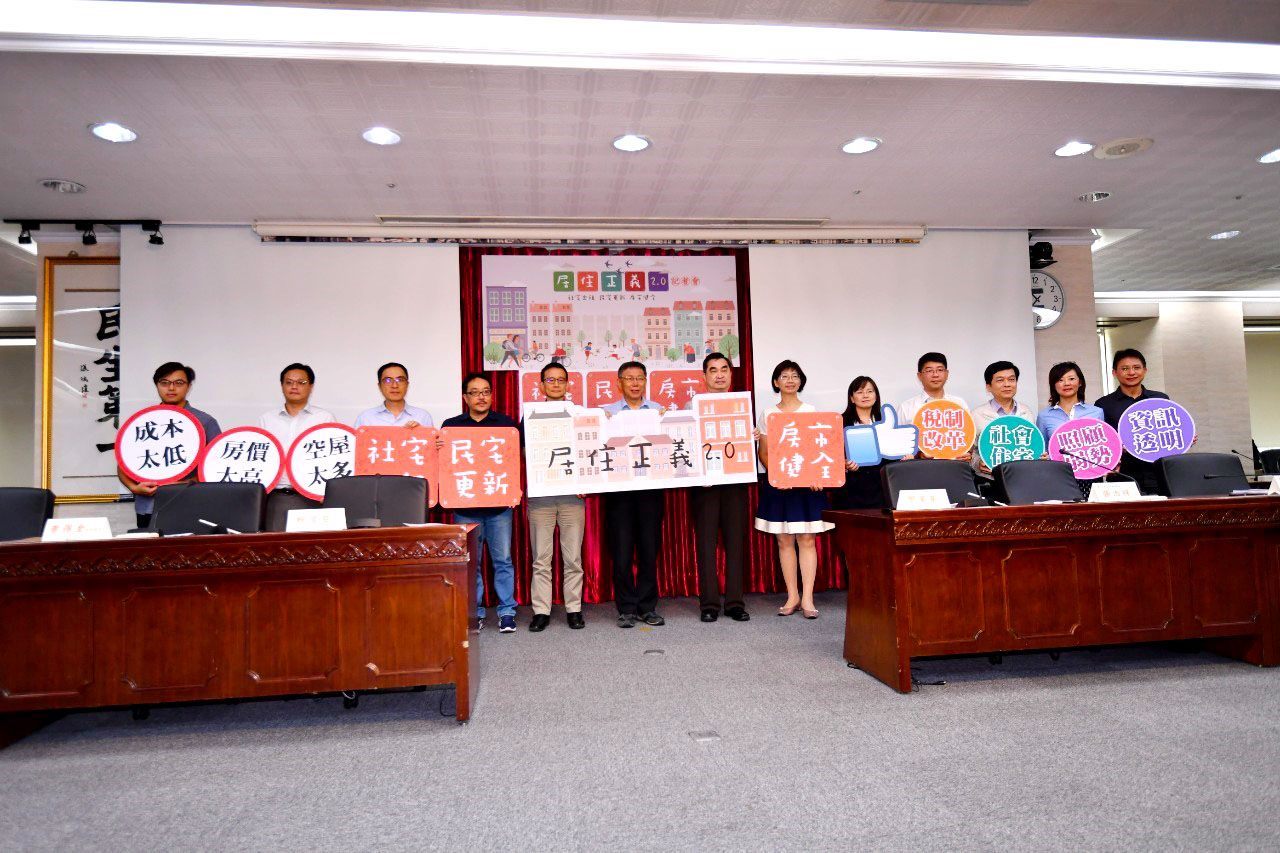Taipei City Government Promotes Housing Justice 2.0
 Taipei City Mayor Ko Wen-je hosted the Taipei City Housing Justice 2.0 press conference at the city hall in the morning of September 10. He emphasized that the Housing Justice 2.0 policy will be implemented by Taipei City Government over the next 3.5 years.
Taipei City Mayor Ko Wen-je hosted the Taipei City Housing Justice 2.0 press conference at the city hall in the morning of September 10. He emphasized that the Housing Justice 2.0 policy will be implemented by Taipei City Government over the next 3.5 years.
Firstly, it will strive to achieve the goal of 50,000 public housing units; secondly, it will lower the house tax on individual owner-occupied houses; thirdly, he urges the central government to approve the amendments made to actual transaction price registration in order to make it more public and transparent. Mayor Ko commented with a heavy heart that people’s livelihood should be resolved irrespective of any political party; if the problem of high house prices and rent is not solved, Taiwan will inevitably experience the same problem as Hong Kong.
According to Mayor Ko, the priority of Taipei City Housing Justice 2.0 is still achieving 50,000 public housing units, with over 9,000 units currently under construction. He is aware that it is impractical to believe that 50,000 units will be completed within 4 years, therefore if estimated based on the progress of building 10,000 units every year, it will require at least 3 more years. Consequently, he hopes the policy will be continued by the next mayor – whoever he or she may be – on an ongoing basis, where 10,000 units will be constructed annually to bring the total to 50,000 units.
Mayor Ko stated that the greatest achievement of Taipei City Government’s public housing over the last 4 years is turning it from a NIMBY facility into a popular building in the community. When he conducted briefings in the past, he was met with loud, angry protesters showering him with joss money, but now some sub-district chiefs are even vying for more draws in the public housing lottery. He believes that the success is attributed to several factors including the pleasant aesthetics and overall high quality (such as smart buildings, green building, accessible space, and earthquake resistance certification) of the public housing projects. The biggest success of all is the inclusion of the entire community’s needs into the projects. Before, public housing was just public housing with no frills, but now it has evolved into residential buildings with daycare, kindergarten, elderly daycare, community activity center and daycare center on the lower levels. Furthermore, 10% of the public housing units are not acquired through the lottery, but through application, so that young people willing to engage in community development are invited to conduct farm city courses or family education, in turn bringing the public housing and local communities together through community development. If people ask him what his greatest accomplishment in promoting public housing is, it is definitely transforming public housing from a NIMBY facility into a popular infrastructure in the community, therefore the objective of 50,000 public housing units will ultimately be attained.
The mayor commented that houses are designed to accommodate people, not for driving up property prices. Therefore if an individual only has one house with the same address as his or her household registration, and there is evidence that he actually lives in the house, the house will be deemed as a necessity, and the house tax will be decreased from 1.2% to 0.6%; however, if the person owns multiple houses, the house tax will also increase corresponding to the number of houses he or she owns. In this respect, Ko agrees with Legislator Huang Kuo-chang’s appeal to the Legislative Yuan, and Taipei City Government will recommend the central government adjust the tax rate based on the number of houses owned by citizens to raise the cost of owning unoccupied houses; otherwise the problem of housing speculation will never be resolved.
Ko suggested that Taipei City Government will half the house tax if an individual only has one house with the same address as his household registration, and there is evidence that he actually lives in the house. On the other hand, if he/she owns numerous houses, the house tax will gradually increase; however, if the house owner is willing to join the guaranteed rent and property management program, the city government will also grant him the lowest house tax rate as that of individual owner-occupied houses. Additionally, there are currently 14,000 households applying for rent subsidy, and the city government’s target is 20,000. The city government will continue to expand the scope of the subsidies in order to minimize obstacles during the application process.
Lastly, Mayor Ko stressed that Taipei City Government supports actual transaction price registration, and it will uphold an open, transparent approach within the legal framework to materialize actual transaction price registration. He also appealed to the central government to pass legislation to make actual transaction price registration more open and transparent.

![Taiwan.gov.tw [ open a new window]](/images/egov.png)
